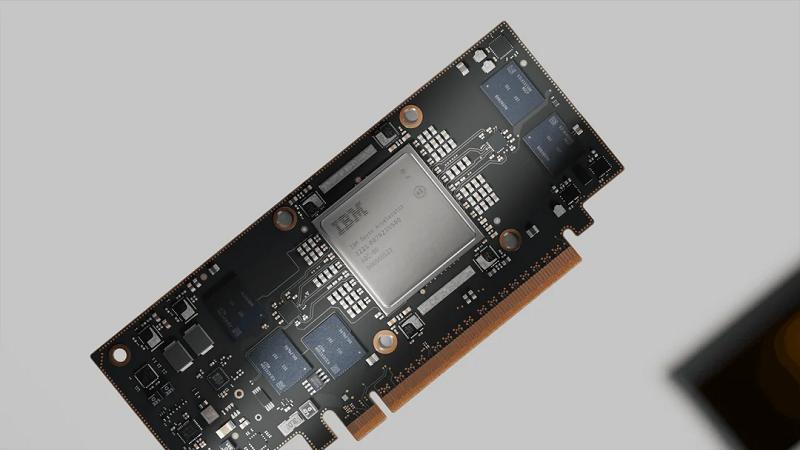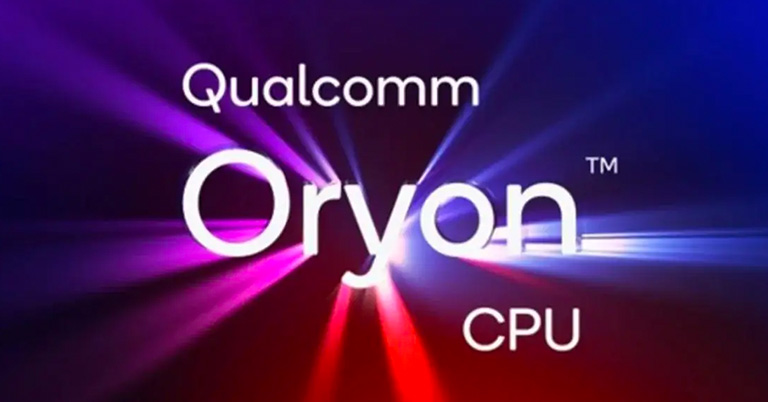Frontier Developments in the Chip Industry: An Overview of Hot Chips 2024 Conference
At the Hot Chips Conference 2024, the world's leading chip manufacturers showcased their latest technologies and products. This article delves into some of the most compelling chip technologies unveiled by Intel, AMD, IBM, NVIDIA, Qualcomm, and Tesla during the conference.
NVIDIA: Comprehensive Showcase of Blackwell Architecture
NVIDIA unveiled detailed information about its next-generation GPU architecture, Blackwell. Blackwell is a comprehensive computing solution encompassing various chipsets such as Blackwell GPU, Grace CPU, and BlueField data processing units. A highlight of this architecture is its high-bandwidth interconnect capability, enabling two GPU chips to achieve 10TB/s of bandwidth through NV-HBI technology. Additionally, NVIDIA introduced new FP4 and FP6 precisions along with the GB200 NVL72 chip designed for trillion-parameter AI.
IBM: Telum II Processor and Spyre Accelerator
 IBM announced previews of its next-generation AI accelerator, the Telum II processor, and the Spyre Accelerator at the conference. The Telum II processor, utilizing Samsung's 5nm technology, offers enhanced performance and larger cache capacity. Meanwhile, the Spyre Accelerator comprises 32 AI accelerator cores, sharing an architecture with the AI accelerators in the Telum II chip, aiming to support a broader range of AI models.
IBM announced previews of its next-generation AI accelerator, the Telum II processor, and the Spyre Accelerator at the conference. The Telum II processor, utilizing Samsung's 5nm technology, offers enhanced performance and larger cache capacity. Meanwhile, the Spyre Accelerator comprises 32 AI accelerator cores, sharing an architecture with the AI accelerators in the Telum II chip, aiming to support a broader range of AI models.
Intel: Xeon 6 SoC and Lunar Lake Processors
Intel presented its Xeon 6 SoC and Lunar Lake client processors. The Xeon 6 SoC integrates high-performance computing chipsets with edge-optimized I/O chipsets, offering advanced features like PCIe 5.0, CXL 2.0, and 100G Ethernet. The Lunar Lake processors, on the other hand, feature improvements in both performance cores and efficient cores, delivering increased performance and reduced power consumption.
AMD: Zen 5 Core Architecture
AMD provided an in-depth look at its Zen 5 core architecture, marking the next iteration in its high-performance PC journey. Zen 5 boasts a 16% IPC uplift through AVX-512 and FP-512 variants, and adopts 4nm/3nm process technology. AMD also plans to add additional ISA extensions and security features through Zen 5 and Zen 5C core variants.
 Qualcomm: Oryon Core CPU
Qualcomm: Oryon Core CPU
Qualcomm showcased its Oryon CPU within the Snapdragon X Elite. Oryon, Qualcomm's Arm-based core, focuses on critical areas such as instruction fetching, vector execution, renaming and retirement, integer execution, memory management, and load/store. The design of Oryon emphasizes a balance between high performance and low power consumption.
Tesla: TTPoE Protocol
Tesla introduced its TTPoE (Tesla Transport Protocol over Ethernet), a low-latency network protocol designed for the Dojo supercomputer. By simplifying the TCP protocol's state machine and optimizing connection opening and closing sequences, TTPoE offers better latency performance than standard TCP protocols.
 China's Xiangshan RISC-V Processor
China's Xiangshan RISC-V Processor
The Institute of Computing Technology, Chinese Academy of Sciences, exhibited the latest advancements in its open-source, high-performance RISC-V processor core, "Xiangshan." The third-generation Xiangshan (with Kunming Lake as its microarchitecture codename) targets the performance standards of Arm Neoverse N2, showcasing China's progress in high-performance processor design.
In conclusion, the Hot Chips 2024 Conference showcased the chip industry's latest advancements in AI, high-performance computing, and networking technologies, portending the future direction of computing technology development.
l The TL074CN is a four-channel low noise JFET input general purpose operational amplifier manufactured by Texas Instruments (TI). This Op-amp integrates well-matched high-voltage JFET and bipolar transistors to provide low harmonic distortion and low noise, making it ideal for high-fidelity and audio preamplifier applications. It also offers offset adjustment and external compensation options with low power consumption, wide common-mode and differential voltage ranges, low input bias and offset currents, output short-circuit protection, high input impedance, internal frequency compensation, latchless operation, and high conversion rates.
l EPM570T100C5N is a MAX II series CPLD (Complex Programmable logic Device) produced by Altera (Intel). With 570 logical units and 440 macro units, the FPGA supports a high I/O count and fast performance. It uses Flash storage technology with a fast propagation delay of 8.7ns and clock to output time, making it ideal for logic control applications that require fast responses. The EPM570T100C5N also features a User Flash Memory (UFM) module and enhanced in-system programmability (ISP), as well as hot swap support.
l The MPC8247CVRTIEA is a high-performance 32-bit MCU microcontroller from NXP that combines an efficient dual-core architecture with an integrated 603e core and a separate RISC-based communications processor module. The microcontroller has a wide range of applications in many fields, MPC8247CVRTIEA is suitable for network equipment requiring encryption capabilities, but also suitable for xDSL equipment, can also be used in automotive, industrial control, test and measurement fields.
Website: www.conevoelec.com
Email: info@conevoelec.com








